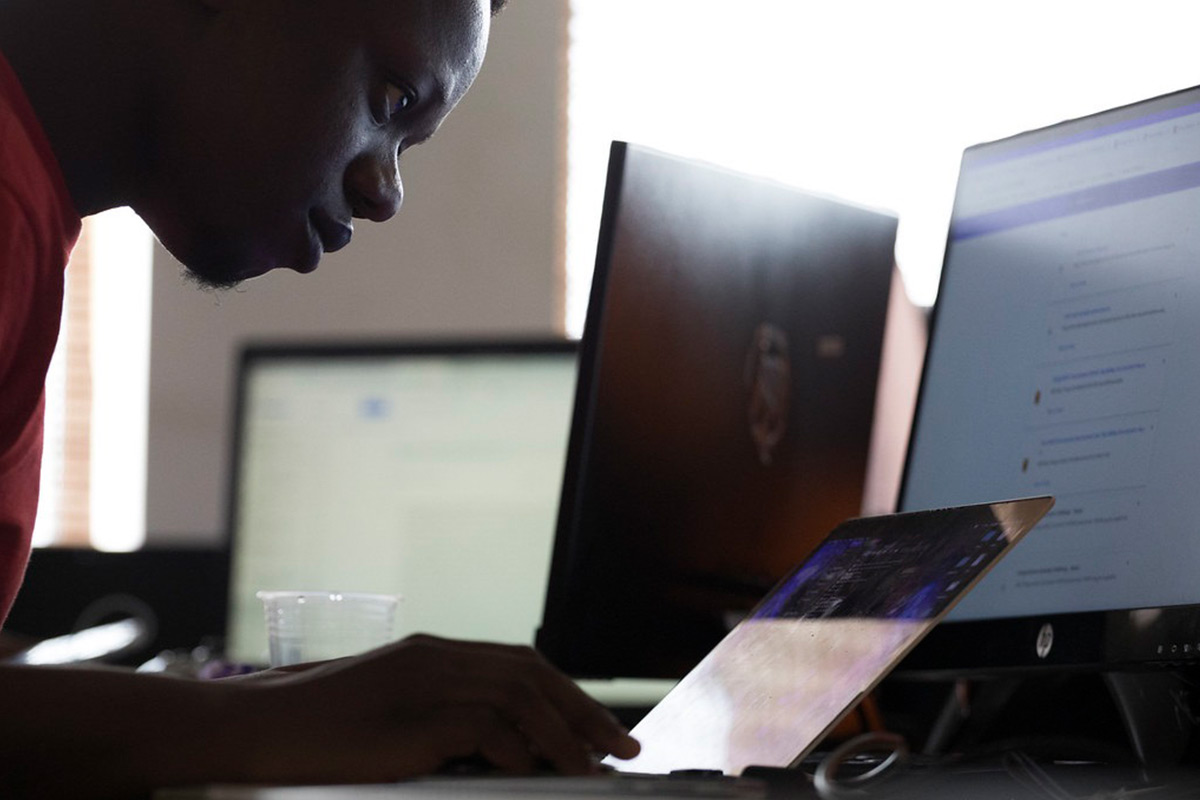Blog
-

-
Member of the Advisory Committee of the IFC-Canada Africa Local Economic Development Program
Jul 21, 2020

Credit: Fatmata Kanneh, World Hope International
With the entire globe focused on the impact of the COVID-19 crisis, every business–along with their finance and development partners—must ask the question “How should we respond? How will we recover? How does this impact our value chains?” As a counselor to the Canada/IFC Local Economic Development Advisory Program in Africa, my colleagues and I were reflecting on some challenges and opportunities.
When facing extreme uncertainty, it can be useful to go back to basics. In many scenarios, small and medium sized enterprises (SMEs) experience the disadvantages of their scale:
- SMEs have small markets, typically confined to their immediate geographic surrounds.
- SMEs often service other small businesses or retail consumers who are likely to be at the forefront of job losses during economic downturns.
- SMEs may operate with limited savings and lack financial resilience when experiencing a cashflow crunch.
- SMEs may lack leverage with financiers and suppliers.
But in uncertain times, small can also be beautiful.
- SMEs are not typically heavily invested in equipment and other capital goods, unlike large manufacturing or service providers.
- They tend to have lean and flexible decision-making structures.
- They also often hold limited inventory and will likely not be burdened with a large quantity of goods tying up cash.
- In particular, women-owned or operated businesses may have the additional benefit of prior experience in balancing working from home with caregiving.
- And African SMEs that have lived through Ebola have even more experience with how to pivot, stay safe, and survive during a destabilizing health crisis.
The recent IFC Sustainability Exchange, a virtual event focused on ‘connecting the disconnected’, highlighted numerous speakers from government, private sector and communities who noted that female entrepreneurs have the talent, drive, determination and energy to succeed with the odds stacked against them. However, they need access to finance, training and sponsors on Boards to open doors for them. Imagine the shared value that could be unlocked if these businesses were just better connected to investors, inputs, networks, and other resources.
“Many times, women are taken as numbers. But they are not numbers. They are energy. They are expertise. They are knowledge. They have to be at the centre of the decisions when we plan, when we implement, when we evaluate, when we shape policies.” – Graça Machel, Founder, Graça Machel Trust at the virtual IFC Sustainability Exchange
In this pandemic context, the agility and resilience of women’s groups and SMEs can be harnessed to allow local economies to drive their own recovery. Doing so successfully will require a mindset change from all partners in the financial ecosystem – including entrepreneurs themselves.
So what factors are necessary for SMEs to succeed?
First Mover Advantage: Entrepreneurs who move quickly to take advantage of market opportunities created by the pandemic will have easier task raising capital and locking in clients where many incumbent market leaders may be stalled or disappearing. Proximity to markets and buyers, ability to mobilize finance rapidly, and willingness to pivot operations to newly-relevant goods and services will be key for current SMEs to survive the pandemic. Local is a new asset when goods are stuck across boarders!
In Guinea and Sierra Leone, for example, IFC has been working with clients GAC, CBG and Sierra Rutile Limited to support local SMEs and women-led cooperatives in producing masks, soaps, and essential PPE equipment for use on site and distribution in host communities. These efforts have proven successful in generating income and meeting local demand because they focus on essential short-term and long-term needs. Similarly, grocery, laundry, and neighborhood delivery services are other examples of business activity likely to thrive in the Covid era.
Embracing the New Normal: Recognizing and embracing that the flexibility demanded by “the new normal” is a vital advantage for SMEs. When viewed with an entrepreneurial lens, a world of limited human movement, home-based work and consumption can provide new opportunities for businesses agile enough to spot them.
For entrepreneurs and craftspeople, goods such as processed foodstuffs, fashion, jewelry can all be produced within the home and reach large markets via digital retail channels. Indeed, female entrepreneurs have been successfully thriving in these fields for many decades. Small professional services firms such as accountants, software developers, virtual market matchmakers, may also realize the advantages of home-based work, with lower overheads and the ability to contract customers remotely. In IT, the circular economy, linking homeworkers with companies dismantling and recycling electronic gadgets is another potential growth area.
The decentralization of logistics and production observed during lockdown also has huge upside for resurgent local economies. This can be seen particularly in the agricultural sector, where producers are seeking local processing options or even undertaking processing themselves for added value, with the knowledge that their ability to outcompete industrial supply chains in reaching local markets will guarantee access to customers.
If we accept the advice from researchers that we should prepare for similar pandemics in the future, we must begin transforming the challenges of Covid-19 into new business opportunities. We must learn from industries like artisanal crafts, to understand the best practices for scaling up working from home such that all employees – particularly those with children, mothers especially – have the support they need to allow them to contribute meaningfully while supporting their families.
The silver lining to such a disruptive, painful time is the chance it offers us to rebuild our societies and economies on a more solid, egalitarian foundation. No path at this point is inevitable. But by going back to basics, embracing the demand for local, focusing on essential services and products, offering logistical flexibility, and harnessing the resourcefulness and creativity of local female and male employees, SME entrepreneurs can position themselves as a thriving cornerstone of the world that emerges post-pandemic.

